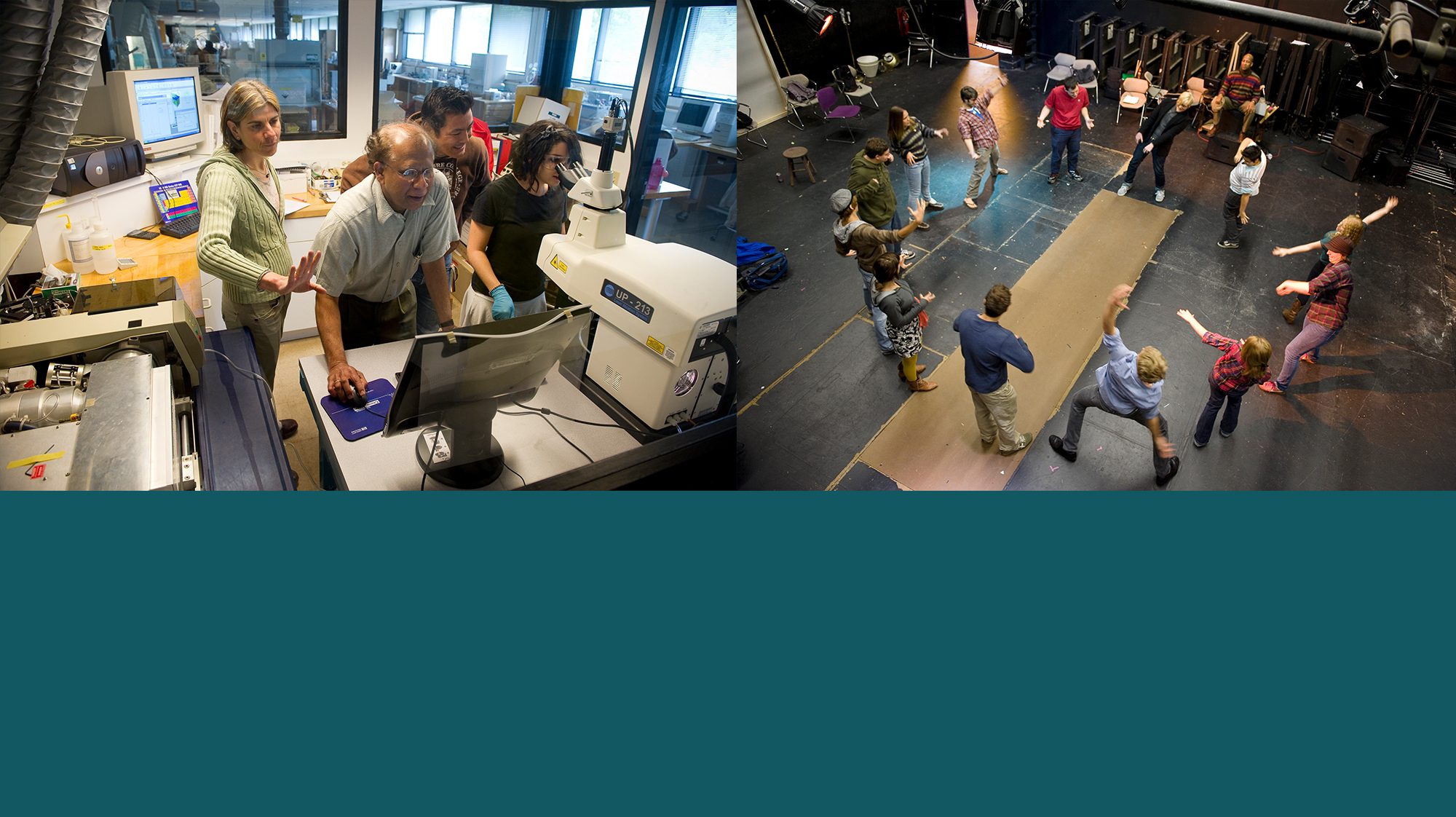Articles on education by Hampshire faculty
Listed chronologically from the present. As permission to publish online is received, a link to the pdf form will be provided.
Wenk L., & Rueschmann, E. (2013) Hampshire College’s Division III – To Know is Not Enough. Peer Review, 15(4) 8-11.
Wenk, L. & Luschen, K. (2013). Multiple Routes, Alternative Learning Experiences: Developing Analytic Abilities, Practical Skills, Creativity, and Self-Reflection at Hampshire College in DeVitis, Joseph L. (ed.) The College Curriculum, A Reader (pp. 179 – 191). New York: Peter Lang Publishing Group.
Wenk, L. & Tronsky, L. (2011). First Year Students Benefit from Reading Primary Scientific Articles. The Journal of College Science Teaching 40 40-67.
V. Greene and C. Tinson: ‘Do the Right Thing’: Still a Racial Rorschach at 20′
August 31, 2009
C. D’Avanzo: Biology Concept Inventories: Overview, Status, and Next Steps, BioScience, Dec 2008/Vol.58, No. ll.
D. Amarasiriwardina: Teaching analytical atomic spectroscopy advances in an environmental chemistry class using a project-based laboratory approach: investigation of lead and arsenic distributions in a lead arsenate contaminated apple orchard, Anal Bioanal Chem (2007) 388:307-314.
S. Weisler and C. Trosset: Evaluating Quality of Engagement in Hampshire College’s First-Year Plan, Peer Review. Summer 2006
Smith, C. L. and Wenk, L. (2006) Relations Among Three Aspects of First-Year College Students’ Epistemologies of Science, Journal of Research in Science Teaching, 43(8) 747-785.
R. Rakoff: DoingOriginalResearchBobRakoff The History Teacher. 37(1) 2003
Wenk, L. (2000). Improving Science Learning: Inquiry-based and traditional first-year college science curricula. Dissertation Abstracts International, 61 (10), 3885A. (UMI No. AAT 9988852)
C. D’Avanzo and A.P. McNeal: Research for All Students: Structuring Investigation into First-Year Courses, Student-Active Science: Models of Innovation in College Science Teaching. 1997.
K. Hoffman: Computers as a Foundation for Student-Active Mathematics, Student-Active Science: Models of Innovation in College Science Teaching. 1997.
A.P. McNeal: Teacher Active Workshops: Collaborative Structures for Curricular Reform, Student-Active Science: Models of Innovation in College Science Teaching. 1997.
L. Spector: Artificial Intelligence as the Liberal Arts of Computer Science, SIGART Bulletin, Vol. 6, No. 2. Special Section on AI and Education. 1995.
A.P. McNeal and M. Murrain: Drugs in the Nervous System: A Course in Learning to Learn Science, College Teaching, v42, n2, pp. 47-50. Spr 1994.
A. Woodhull-McNeal: Teaching Introductory Science as Inquiry, College Teaching, v37, no1, Winter 1989, pp. 3-7.
F. Weaver: Liberal Education, Inquiry, and Academic Organization, Promoting Inquiry in Undergraduate Learning, no 38, Summer 1989.
A. McNeal: Real Science in the Introductory Course, Promoting Inquiry in Undergraduate Learning, no 38, Summer 1989.
N. Stillings: Inquiry and Cognitive Psychology, Promoting Inquiry in Undergraduate Learning, no 38, Summer 1989.
K. Hoffman: Calculus and More: Computers, Finite Mathematics, and an Innovative Science Course, Promoting Inquiry in Undergraduate Learning, no 38, Summer 1989.
F. Weaver: Introductory Statistics: Questions, Content, and Approach, Promoting Inquiry in Undergraduate Learning, no 38, Summer 1989.
H. Selin: Teaching Research Methods to Undergraduates, College Teaching, vol 36, no 2, Spring 1988, pp. 54-56.
K. Warren: The Student Directed Classroom: A Model for Teaching Experiential Education Theory, Journal of Experiential Education, v11, n1, pp. 4-9, Spring 1988.
Publications about Hampshire College by Outside Professionals
R.M. Alpert: Professionalism and Educational Reform: The Case of Hampshire College, The Journal of Higher Education, v51, no5, Sept-Oct 1980), pp. 497-518.
J.S. Meister: A Sociologist Looks at Two Schools: The Amherst and Hampshire Experiences, Change, v14, n2, pp. 26-34, Mar 1982.
Publications about the founding of Hampshire College

